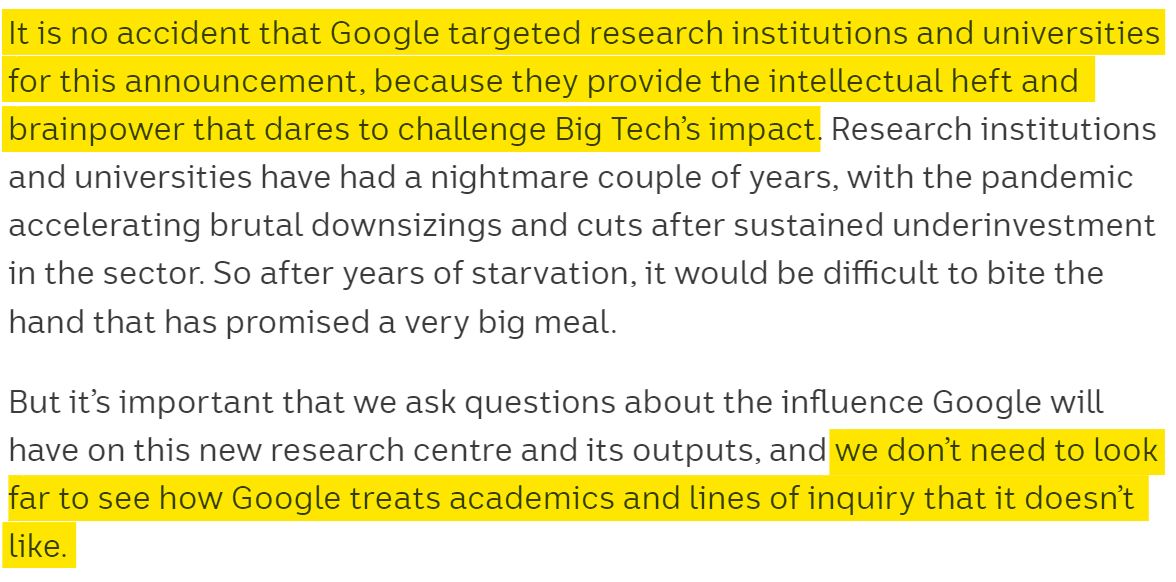
🧵on Google, Tech Regulation, & Risk of Industry Capture in 🇦🇺
"Google’s investment in Australia’s tech future — a boon for universities or a Faustian bargain?" by @jordanguiao 1/
abc.net.au/religion/googl…
"Google’s investment in Australia’s tech future — a boon for universities or a Faustian bargain?" by @jordanguiao 1/
abc.net.au/religion/googl…
Australia's competition regulator found:
- Google engages in anti-competitive behavior in digital advertising, which harms consumers & businesses
accc.gov.au/media-release/…
- monopoly on search has "stifled innovation and reduced consumer choice"
ia.acs.org.au/article/2021/a… 2/
- Google engages in anti-competitive behavior in digital advertising, which harms consumers & businesses
accc.gov.au/media-release/…
- monopoly on search has "stifled innovation and reduced consumer choice"
ia.acs.org.au/article/2021/a… 2/
Australian federal court found that Google misled Australian mobile and tablet users on how it collects location data 3/
abc.net.au/news/2021-04-1…
abc.net.au/news/2021-04-1…
Research institutions & universities challenge Big Tech, but are desperate for funds due to austerity... It may be difficult to say no to Google funding, but we don't need to look far to see how Google treats academics & lines of inquiry it doesn’t like
abc.net.au/religion/googl… 4/
abc.net.au/religion/googl… 4/

Big Tech's control of resources & funding are "creating a web of conflicted relationships that threaten academic freedom and our ability to understand and regulate these corporate technologies." @mer__edith 5/
https://twitter.com/mer__edith/status/1460652982572400649?s=20
"Are we willing to trade away knowledge & capabilities
of future tech to a company we know wants to monopolize these? By allowing Google to cozy up to researchers, are we providing them legitimacy over their claims to our scientific & tech future?" 6/
abc.net.au/religion/googl…
of future tech to a company we know wants to monopolize these? By allowing Google to cozy up to researchers, are we providing them legitimacy over their claims to our scientific & tech future?" 6/
abc.net.au/religion/googl…
As @antmandan noted, regulation in Australia doesn't just impact Australia; the world is watching any countries that attempt to regulate Big Tech 7/
abc.net.au/radio/programs…
abc.net.au/radio/programs…
https://twitter.com/math_rachel/status/1461098192729214983
• • •
Missing some Tweet in this thread? You can try to
force a refresh















